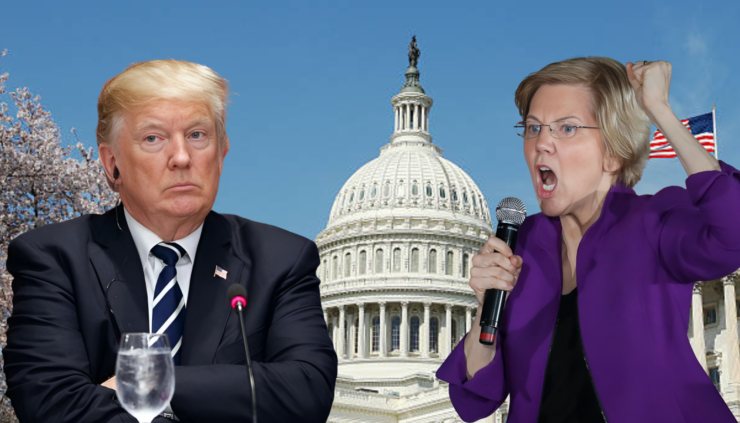Senator Elizabeth Warren has escalated her criticism of a proposed federal stablecoin bill, directly accusing President Donald Trump of leveraging the legislation to pursue personal financial interests. In a social media post shared Wednesday, Warren pointed to Trump’s association with World Liberty Financial, a decentralized finance protocol that recently announced the launch of its USD1 stablecoin on both Ethereum and BNB Chain.
Warren claimed the project is part of a broader effort by Trump to “enrich himself” through emerging digital asset frameworks. She also tied Elon Musk to what she described as a dangerous convergence of unregulated finance and political power. In her remarks, Warren warned that the pending legislation, known as the Financial Innovation and Technology for the 21st Century Act (FIT21), would create loopholes enabling politically connected individuals to gain control over digital money systems.
Calling the effort a “crypto grift,” Warren urged Congress to revise the bill before it advances further through the Senate.
FIT21 and the Push for U.S. Crypto Dominance
The Financial Innovation and Technology for the 21st Century Act (FIT21) is emerging as a cornerstone of legislative efforts to define a federal framework for digital assets. According to Rep. French Hill (R-AR), an updated version of the bill is expected to be released in the coming days, with lawmakers aiming to refine regulatory clarity around stablecoins, market infrastructure, and oversight responsibilities between agencies like the SEC and CFTC.
While the bill continues to draw criticism from progressives, the Trump administration has moved swiftly to position the U.S. as a global leader in digital asset development. Recent initiatives include the formation of a dedicated SEC task force focused on digital asset enforcement and policy alignment—part of a broader effort to reframe the regulatory climate as innovation-friendly.
In remarks delivered via video at the Digital Asset Summit in New York, President Trump called for “simple, common-sense rules” to govern stablecoins and broader market structures. The statement reinforced the administration’s pivot toward fostering crypto growth while signaling a potential shift in tone from earlier ambivalence toward digital assets.
Warren Raises Red Flags Over Musk’s Role in Government Crypto Policy
Senator Elizabeth Warren also intensified her criticism of what she views as undue private influence over U.S. financial policy, pointing specifically to Elon Musk’s leadership role in the Department of Government Efficiency (DOGE). The department, established under the Trump administration, is tasked with cutting regulatory red tape and streamlining government operations—but its overlap with financial policymaking has drawn scrutiny.
Warren argues that Musk’s position at DOGE risks embedding corporate interests at the heart of public governance. The senator previously warned in a January letter that the department could become a “venue for corruption,” citing concerns over Musk’s ties to multiple industries that stand to benefit from deregulation—including digital assets and payments.
In her correspondence in January, Warren called for a set of structural reforms aimed at strengthening oversight and reducing potential conflicts of interest. These included proposed limits on tax incentives for high-net-worth individuals and a reassessment of how federal contracts are awarded and executed. As private-sector figures gain influence in public institutions, critics like Warren argue that crypto-related policymaking risks becoming skewed toward the interests of a few, rather than grounded in broad public accountability.
Quick Facts:
- Senator Elizabeth Warren accused President Trump of using the FIT21 stablecoin bill to advance his personal financial interests.
- She cited Trump’s links to World Liberty Financial, which recently launched the USD1 stablecoin on Ethereum and BNB Chain.
- Warren described the legislation as a “crypto grift” and warned it could allow politically connected figures like President Trump and Elon Musk to dominate digital finance.
- Her remarks reflect increasing political tension over who stands to benefit from emerging U.S. stablecoin regulations.





